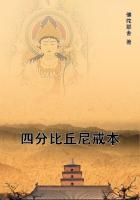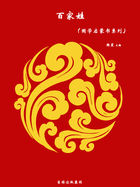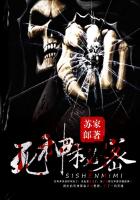How it chanced that a man who reasoned on his premises so ably, should assume his premises so foolishly, is one of the great mysteries of human nature. The same inconsistency may be observed in the schoolmen of the middle ages. Those writers show so much acuteness and force of mind in arguing on their wretched data, that a modern reader is perpetually at a loss to comprehend how such minds came by such data. Not a flaw in the superstructure of the theory which they are rearing escapes their vigilance. Yet they are blind to the obvious unsoundness of the foundation. It is the same with some eminent lawyers. Their legal arguments are intellectual prodigies, abounding with the happiest analogies and the most refined distinctions. The principles of their arbitrary science being once admitted, the statute-book and the reports being once assumed as the foundations of reasoning, these men must be allowed to be perfect masters of logic. But if a question arises as to the postulates on which their whole system rests, if they are called upon to vindicate the fundamental maxims of that system which they have passed their lives in studying, these very men often talk the language of savages or of children. Those who have listened to a man of this class in his own court, and who have witnessed the skill with which he analyses and digests a vast mass of evidence, or reconciles a crowd of precedents which at first sight seem contradictory, scarcely know him again when, a few hours later, they hear him speaking on the other side of Westminster Hall in his capacity of legislator. They can scarcely believe that the paltry quirks which are faintly heard through a storm of coughing, and which do not impose on the plainest country gentleman, can proceed from the same sharp and vigorous intellect which had excited their admiration under the same roof, and on the same day.
Johnson decided literary questions like a lawyer, not like a legislator. He never examined foundations where a point was already ruled. His whole code of criticism rested on pure assumption, for which he sometimes quoted a precedent or an authority, but rarely troubled himself to give a reason drawn from the nature of things. He took it for granted that the kind of poetry which flourished in his own time, which he had been accustomed to hear praised from his childhood, and which he had himself written with success, was the best kind of poetry. In his biographical work he has repeatedly laid it down as an undeniable proposition that during the latter part of the seventeenth century, and the earlier part of the eighteenth, English poetry had been in a constant progress of improvement. Waller, Denham, Dryden, and Pope, had been, according to him, the great reformers. He judged of all works of the imagination by the standard established among his own contemporaries. Though he allowed Homer to have been a greater man than Virgil, he seems to have thought the Aeneid a greater poem than the Iliad. Indeed, he well might have thought so; for he preferred Pope's Iliad to Homer's. He pronounced that, after Hoole's translation of Tasso, Fairfax's would hardly be reprinted. He could see no merit in our fine old English ballads, and always spoke with the most provoking contempt of Percy's fondness for them. Of the great original works of imagination which appeared during his time, Richardson's novels alone excited his admiration. He could see little or no merit in Tom Jones, in Gulliver's Travels, or in Tristram Shandy. To Thomson's Castle of Indolence he vouchsafed only a line of cold commendation, of commendation much colder than what he has bestowed on the Creation of that portentous bore, Sir Richard Blackmore. Gray was, in his dialect, a barren rascal. Churchill was a blockhead. The contempt which he felt for the trash of Macpherson was indeed just; but it was, we suspect, just by chance. He despised the Fingal for the very reason which led many men of genius to admire it. He despised it, not because it was essentially commonplace, but because it had a superficial air of originality.
He was undoubtedly an excellent judge of compositions fashioned on his own principles. But when a deeper philosophy was required, when he undertook to pronounce judgment on the works of those great minds which "yield homage only to eternal laws," his failure was ignominious. He criticised Pope's Epitaphs excellently. But his observations on Shakspeare's plays and Milton's poems seem to us for the most part as wretched as if they had been written by Rymer himself, whom we take to have been the worst critic that ever lived.
Some of Johnson's whims on literary subjects can be compared only to that strange nervous feeling which made him uneasy if he had not touched every post between the Mitre tavern and his own lodgings. His preference of Latin epitaphs to English epitaphs is an instance. An English epitaph, he said, would disgrace Smollett. He declared that he would not pollute the walls of Westminster Abbey with an English epitaph on Goldsmith. What reason there can be for celebrating a British writer in Latin, which there was not for covering the Roman arches of triumph with Greek inscriptions, or for commemorating the deeds of the heroes of Thermopylae in Egyptian hieroglyphics, we are utterly unable to imagine.















